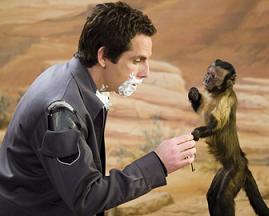One more follow-up to CNN’s “Most Controversial Celebrities of 2006“: Mel Gibson, Tom Cruise, Lindsay Lohan, and Britney Spears not only provided non-stop fun and follies on which a starving (or bored) cultural audience feasted, but something else far more newsworthy–and perhaps dangerous–was going on as well.
It has probably been true every year and I just haven’t noticed it, but 2006 certainly seemed to be the year where saying “I’m sorry” became big business for stars–in some ways, as big as what they do on set. More and more, the business that a movie, TV show, or CD title does has more to do with the star’s image and brand than the actual show or song itself. And if that’s true, then each star’s ability to express regret, or contrition, or apology–or at least the appearance of it–is not only important as a moral value but it’s essential to their livelihood and those of their supporting casts and partners, which is why it’s become big business and why I’m not sure how to trust any apology that ever comes down the spin cycle.
Ever since Hugh Grant went on Jay Leno to be teed up for a his famous apology by Jay’s wonderful “What the hell where you thinking?” question, stars have realized that issuing an apology requires the advance work worthy of a movie premiere or music video rollout, yielding humungous results if executed well.
It’s not just their good name that’s on the line–it’s their marketability and thus their next paycheck.
So now, experts are called in and agents haggle over details of not only the words but the setting and genre of the next well-produced version of “to all my fans, and whomever I may have offended, and all those dear people I’ve ever met anywhere, and to anyone with a pulse who may or may not be tempted to not buy the next thing I act or sing in, I apologize with every fiber of my being for any trouble or damage or lifelong scarring I might have caused in you through my alleged whatever-it-is that got caught on video because if it didn’t I wouldn’t be acknowledging it or apologizing.”
The problem, of course, is that when apologies became part of show business–rather than the stuff that happens off-screen in “real life”–we can never know whether one is authentic or produced. And that, my friends, is not good for a nation of spiritual people who long for authenticity. Today, the acting of actors (and others) extends offscreen, leaving a trail of (possibly) short-term financial success but long-term damage to our nation’s culture.


